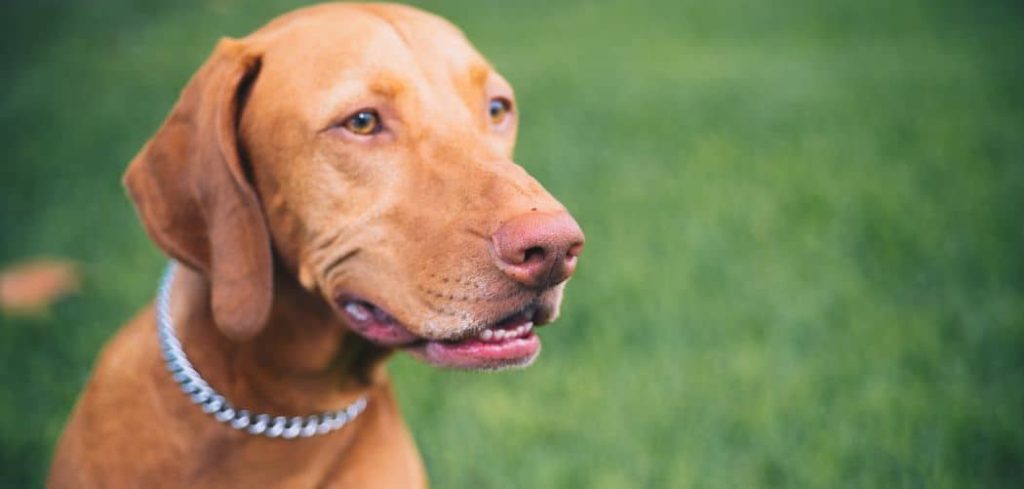Panting is a normal way for dogs to cool down, but if your dog is panting excessively, it could be a sign of stress, pain, or an underlying medical issue. Recognizing when panting crosses the line from normal to concerning can make a big difference.
We outline the common causes of dog panting excessively, what you can do at home, and when to seek veterinary help.
Dog Panting Excessively — Why It Happens
Excessive panting in dogs is often linked to overheating, anxiety, respiratory problems, heart disease, or pain. While it’s normal for dogs to pant after exercise or in hot weather, persistent or heavy panting without an obvious reason may point to something more serious. Paying attention to when and how your dog is panting can offer important clues.

Common Causes of Dog Panting Excessively
Heatstroke or Overheating
Dogs pant to regulate body temperature. When they overheat, panting becomes rapid and shallow.
Signs include drooling, red gums, weakness, or collapse. Flat-faced breeds and overweight dogs are especially at risk.
Heatstroke is a medical emergency that can cause organ failure or death if not treated quickly.
Related: Dog Panting Excessively and Restless (Here’s why)
Pain or Discomfort
Dogs in pain often pant more than usual, even if they’re not visibly injured.
Panting from pain might occur after surgery, during illness, or due to arthritis, abdominal pain, or injury.
You may notice restlessness, whining, or avoiding movement along with the panting.
Anxiety or Stress
Panting is a common response to anxiety. This could be from thunderstorms, fireworks, vet visits, or separation.
Your dog might also pace, tremble, or hide. The panting often stops once the stressor is removed.
Chronic anxiety may need behavior support or calming supplements.
Heart Disease
Dogs with heart problems may pant excessively due to poor oxygen delivery and fluid buildup in the lungs.
Other symptoms include coughing, fatigue, and reluctance to exercise. Panting may worsen at night or during activity.
Heart disease is more common in older dogs and requires ongoing management.
Respiratory Disorders
Conditions like laryngeal paralysis, tracheal collapse, or lung infections make breathing difficult and increase panting.
Look for noisy breathing, wheezing, or bluish gums. These dogs may also gag or avoid exertion.
Respiratory issues often worsen with heat, excitement, or exercise.
Cushing’s Disease
This hormonal disorder causes dogs to pant excessively, even while resting.
Other signs include increased thirst, a pot-bellied appearance, and thinning fur.
Blood tests and hormone screening are needed to confirm diagnosis and begin treatment.
What to Do If Your Dog Is Panting Excessively
First, check if your dog is overheated. Move them to a cool, shaded area and offer water. Use a fan or cool (not cold) damp cloths to bring body temperature down.
If panting occurs in response to a known stressor, try to calm your dog with gentle touch, soft music, or a safe retreat space.
Keep notes on when the panting happens—after meals, during sleep, only outside, etc.—to help your vet pinpoint the cause.
Avoid exercise during the hottest parts of the day, and never leave your dog in a car unattended.
If your dog has an existing heart or respiratory condition, keep medications on hand and follow your vet’s care plan.
When to Call or Visit Your Vet
You should seek veterinary attention if your dog:
Pants heavily at rest or while sleeping
Shows signs of heatstroke (red gums, vomiting, collapse)
Has blue, pale, or gray gums
Pants along with coughing, weakness, or fainting
Has sudden changes in panting behavior or breathing
Excessive panting is often your dog’s way of telling you something is wrong. When in doubt, a vet check can provide clarity and peace of mind.
Read more:
- Dog Breathing Heavily and Not Eating (Could it be heart or lung related?)
- Dog Panting and Not Eating (Here’s why)
Key Takeaway
Dog panting is normal—until it’s not. If your dog is panting excessively without exercise or heat exposure, it’s worth a closer look.
Whether it’s pain, stress, or a medical condition, your vet can help uncover the cause and guide the right treatment. Don’t ignore excessive panting—it could be the first clue to a bigger issue.
